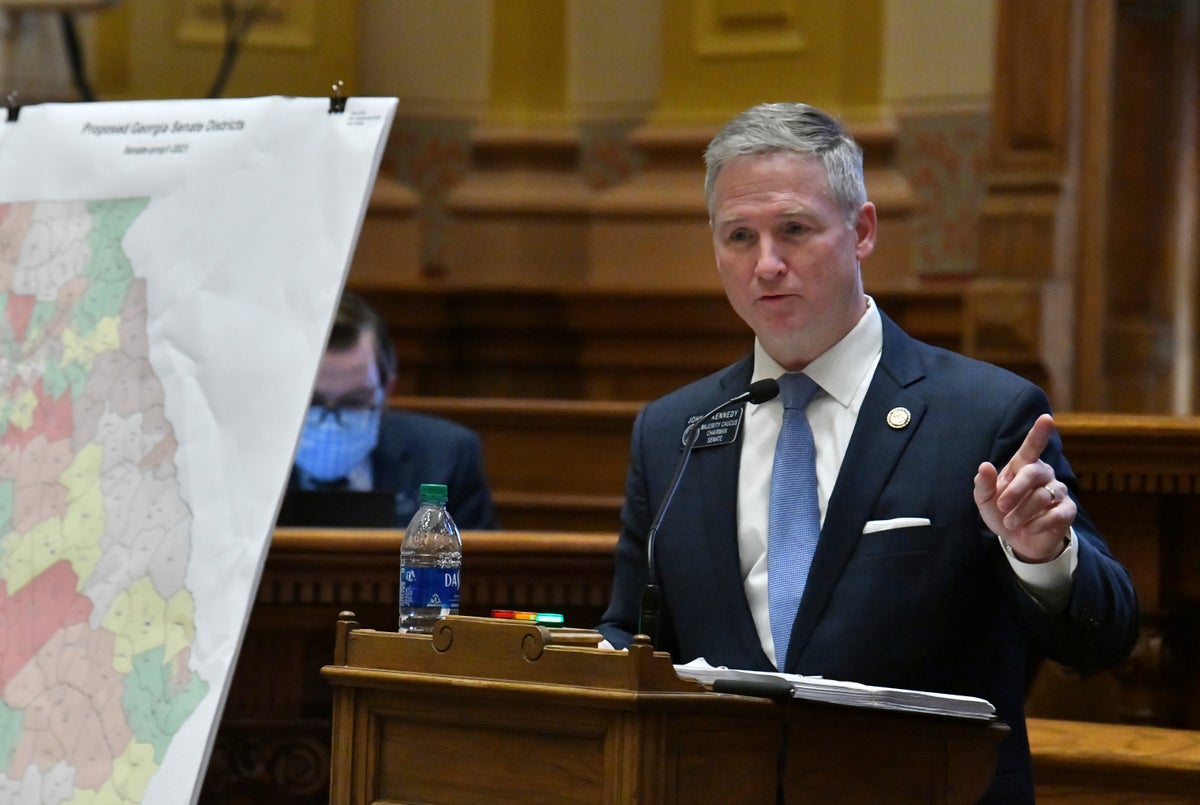
Challengers to Georgia's voting district maps told a federal judge Tuesday that the state is legally required to provide more political opportunities to Black voters, while the state suggested plaintiffs are trying to impose illegal racial gerrymanders of congressional and legislative districts.
Opening statements began in what's expected to be a two-week trial. If the challengers win, Democrats could gain one of Georgia's 14 U.S. House seats, as well as multiple state Senate and state House seats.
The case is a part of a wave of litigation progressing after the U.S. Supreme Court earlier this year stood behind its interpretation of the Voting Rights Act, rejecting Alabama’s challenge to the law. Section 2 of the federal law says voting district lines can’t result in discrimination against minority voters, who must be given a chance to elect candidates of their choosing. A three-judge panel ruled Tuesday that Alabama's attempts to redraw its congressional districts fell short.
U.S. District Judge Steve Jones is hearing the Georgia case without a jury. Jones preliminarily ruled in 2022 that some parts of Georgia’s redistricting plans probably violate federal law, but the trial is needed to flesh out facts for a verdict. Jones could order Georgia’s Republican-controlled General Assembly to redraw districts to comply with the law.
The plaintiffs argue that Georgia's failure is clear after the state added nearly 500,000 Black residents between 2010 and 2020, but drew no new Black-majority state Senate districts and only two additional Black-majority state House districts. They also argue Georgia should have another Black majority congressional district.
“Black voters were shut out of new political opportunities, even though new Black-majority districts could have been drawn," said Sophia Lin Lakin, an attorney representing the plaintiffs. “The court can and should guarantee that Black voters are not denied the opportunity to participate on equal terms.”
Lawyers for the plaintiffs said that white voters continue to vote against candidates preferred by Black voters, proving the Voting Rights Act remedy of drawing Black-majority districts is still needed.
“The Voting Rights Act was designed for cases like this one," Lakin said.
But Bryan Tyson, defending the state's maps, argued that “Georgia has a very different set of facts than Alabama,” which prompted the recent court ruling. Tyson pointed to the election of Democrats Jon Ossoff and Raphael Warnock to the Senate, as well as President Joe Biden's success in carrying Georgia's 16 electoral votes in 2020, as proof that candidates favored by Black voters can win.
“If Georgia’s electoral system is not equally open to Black voters, what would have to change?" Tyson asked. “If the system isn’t currently equally open, where is the failure to follow the Voting Rights Act?”
Tyson argued that the plaintiffs' proposed plans cross the line from legally being aware of race to illegally drawing maps mostly based on race. That's a charge the plaintiffs deny. William Cooper, an expert hired by the plaintiffs to draw alternate maps, testified that it's possible to create more Black-majority districts.
In drawing the alternate maps, Cooper said he considered a number of traditional district-drawing factors, including reducing the number of counties, cities and voting precincts split between districts.
“Race did not predominate," he said.
Tyson also renewed the state's argument that Georgia's maps were drawn to protect incumbents and to prioritize Republican majorities, motives that are legal under federal law. He argued that recent voting behavior shows party, not race, is the most important factor motivating voters.
"You can’t presume race when partisanship is an equally plausible explanation,” he said.
But Abha Khanna, another lawyer for the plaintiffs, dismissed Tyson's arguments, saying his focus on partisanship and current Black electoral success in Georgia ignores the state's obligations under Section 2 of the Voting Rights Act.
Khanna said the state seems to believe that “if they just wish it hard enough, the Supreme Court will change the law, will move the goalposts, will even free the state of Georgia of its Section 2 obligations.”







